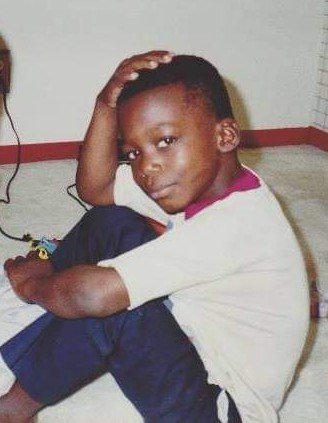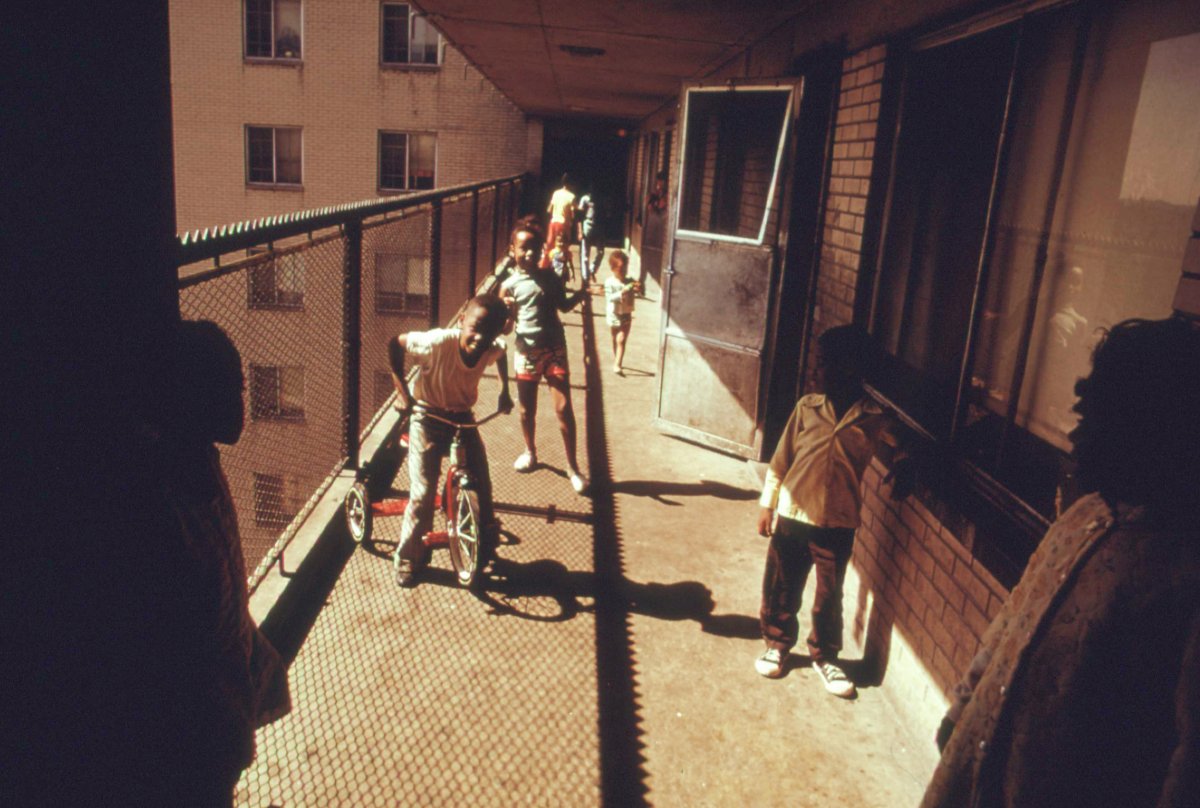"You ever think we'll make it out of this?"
My friend Terry asked this question a lot. "This" meant South Side Chicago in the early '90s, where there was little to talk about but getting out.
I remember the last time Terry asked me that, because he was shot dead the next week in a mistaken identity drive-by. We were nine. I grieved for Terry in the best way I knew how: by staying alive.
On Monday, the city of Evanston, Illinois, became the first in America to give its Black homeowners reparations. But only for certain residents, and only $10 million dollars over the course of 10 years.
As a 34-year-old Black man from Chicago's infamous South Side, this gave me pause. A kid from the Robert Taylor Homes, having lived through a city so bad people always say "Look at Chicago" when they mention what's wrong in America, I can't help but shake my head. Not to downplay Evanston's gains, but this feels like a "congratulations for not being Chicago" award.

My projects had a nickname. The Hole, a collection of three buildings, was exactly that, and you didn't climb out of The Hole... you died trying or crabs in the bottom of the barrel pulled you back in.
I realize now how unfortunate it was to name these buildings after a man so great; Robert Taylor had been a very influential Black social activist and architect who worked in Chicago for years. In his honor, the city erected these buildings to rival the Chicago suburbs. It was a government project, created thanks to the New Deal.
I guess they succeeded at one thing: The architecture of the apartments sure did make it feel like an experiment—a project, if you will—and we, the Black folks, were the subjects. Chain-link fences ran up the sides of the building. Walkways showed proof of how distant the rest of the world was from 16 stories up. I would place my hand on the fence, and I'd stare out at parts of the city I'd never been, would likely never see: Playgrounds. Chain stores. Ice cream trucks.
I could go for a walk, but I knew I'd always have to come back here, to my cage, be a good little guinea pig. Or monkey. Maybe that's how the government saw all of us... some simple, naïve creatures foolish enough to accept the inadequate conditions our experimenters provided.
They did not care how many of us died. Or got transported to a more secure cage—prison. As long as they had more subjects, as long as they could continue the project, harvest data, let us run wild inside two square miles, what did it matter?
Gunshots at nighttime. Rapes in the daytime. The things I've seen and heard. It wasn't Hell on Earth. No. This was Hell inside Hell. The type of fearscape of Satan's nightmares. This was the wild Midwest, later to be called Chiraq, where the cops and the crooks are indistinguishable and often work hand-in-hand to keep that crime train chugging along.
They tore up the Robert Taylor Homes incrementally, between 1998 and 2007. 40 years of suffering demolished in nine. I say good riddance. But—and there's always a but—what they did next was even more of a kick to the gut of a community wincing in pain. Now there are high rise buildings of a different kind, the ever-changing face of public housing. The new buildings, gaudy monstrosities of wealth and elegance, rode in on a red carpet known as gentrification.
Instead of solving the problem, they just transported it—the desperation, despair, and doom. In 2017, 282,000 Chicagoans applied for housing assistance, including nearly 16,000 homeless residents. Only 44% of Blacks can claim homeownership—30% lower than their white counterparts. The white-Black wage gap is as big as it was in 1950.

So you can imagine what it's like for people like me who grew up in Chicago's projects to watch our neighbors in Evanston wake up and realize how much they owe their Black residents.
Imagine the statement that could have been made if one of America's worst cities got the Evanston treatment, decided to infuse money into the economy, invest in infrastructure building, crime prevention, and community outreach by taxing weed sales.
Imagine the power of that move, to show not only the U.S. that we're ready for change, but the world. Imagine if "Look at Chicago!" became a battle cry for how much we've changed.
Something tells me there's a little kid looking out the window of a Chicago project right now, questioning whether a brighter future is possible. Just like Terry did before he was gunned down.
Giving Evanston reparations was the consolation prize America thinks the Black community wants in response to the civil unrest of the past few years. But it completely misses the point of the change we've been asking for: change by miles, not by inches.
Reparations for Evanston isn't good enough; we need a Chicago-sized shift in policy and redistribution. It's sad we still haven't learned this lesson. But it's not too late.
Alex Miller has written for the New York Times, Washington Post, and the Independent, and is also featured in the anthologies "The Byline Bible" and "The Chicago Neighborhood Guidebook."
The views in this article are the writer's own.
Uncommon Knowledge
Newsweek is committed to challenging conventional wisdom and finding connections in the search for common ground.
Newsweek is committed to challenging conventional wisdom and finding connections in the search for common ground.
About the writer
To read how Newsweek uses AI as a newsroom tool, Click here.








